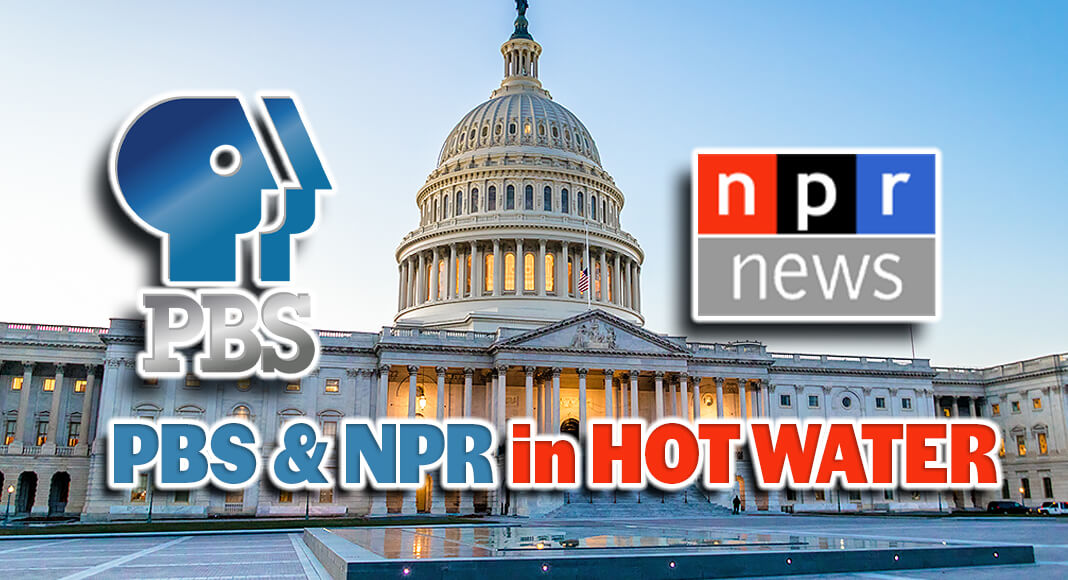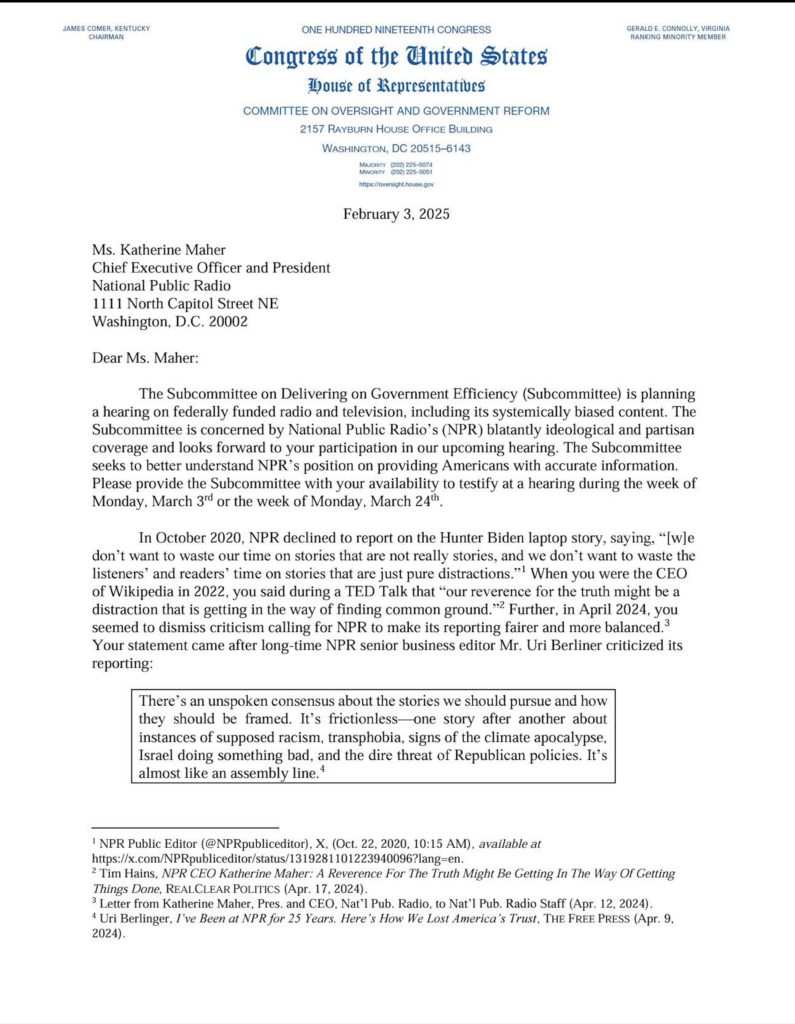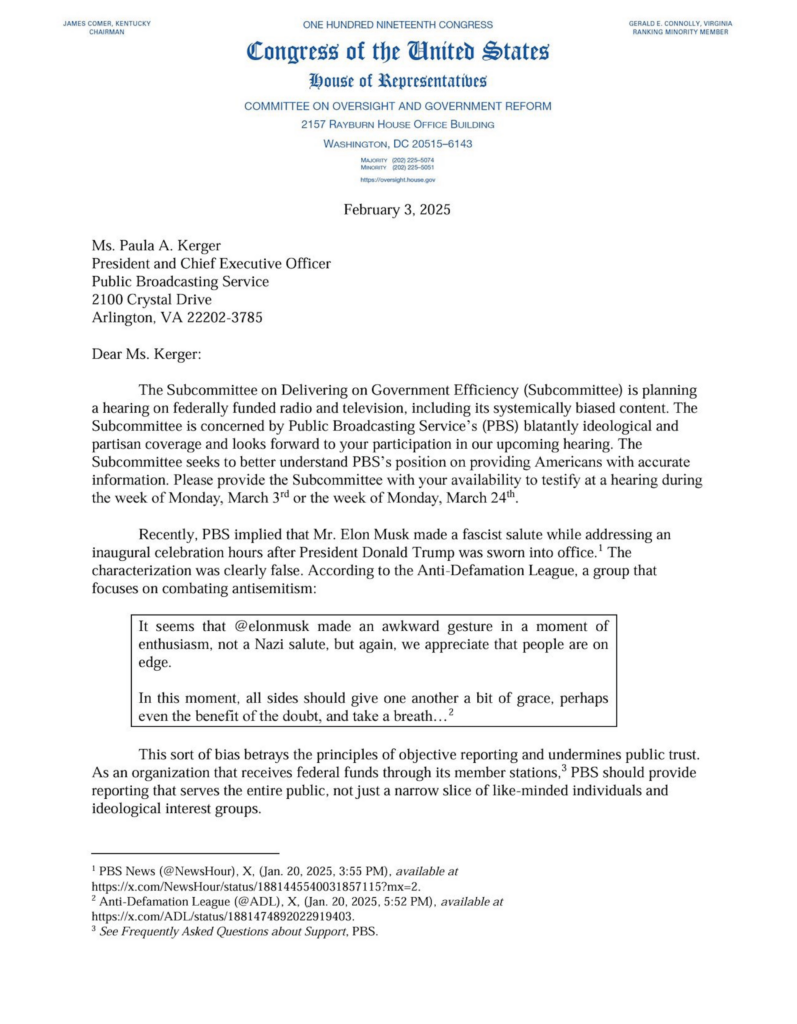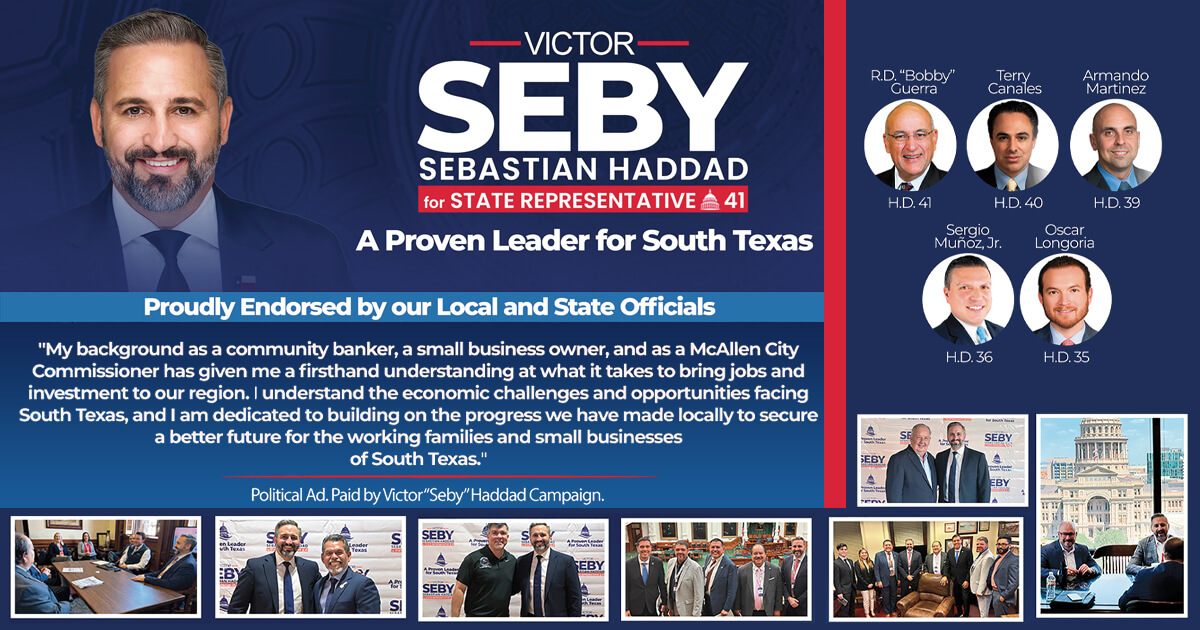
Texas Border Business
Washington, D.C. – The Public Broadcasting Service (PBS) and National Public Radio (NPR) were called to account for concerns over taxpayer funding and alleged partisan bias in their coverage before the newly formed DOGE Subcommittee.
The subcommittee oversees matters related to public funding for media outlets and has issued letters to PBS President and CEO Paula A. Kerger and NPR CEO Katherine Maher. The correspondence raises concerns that these publicly funded institutions fail to provide balanced reporting and instead serve a selective ideological audience.

The criticism stems from past coverage decisions, including NPR’s refusal to report on the Hunter Biden laptop story during the 2020 presidential election, which some argue shielded then-candidate Joe Biden from scrutiny. Additionally, PBS has come under fire for its reporting following President Trump’s second inauguration, where it was alleged that the network falsely suggested that entrepreneur Elon Musk made a fascist salute at the event.

In the letters, the DOGE Subcommittee asserts that PBS and NPR’s editorial choices have led to distrust among a significant portion of the American public, raising questions about their continued reliance on taxpayer dollars. The subcommittee aims to hold hearings where both media executives will be expected to justify their funding and address concerns over their editorial practices.
Supporters of the inquiry argue that publicly funded media should uphold strict neutrality, ensuring fair representation of all perspectives rather than serving partisan interests.
As the debate over the role and funding of public media continues, the upcoming hearings promise to be a focal point in discussions surrounding media accountability, government oversight, and press independence.













